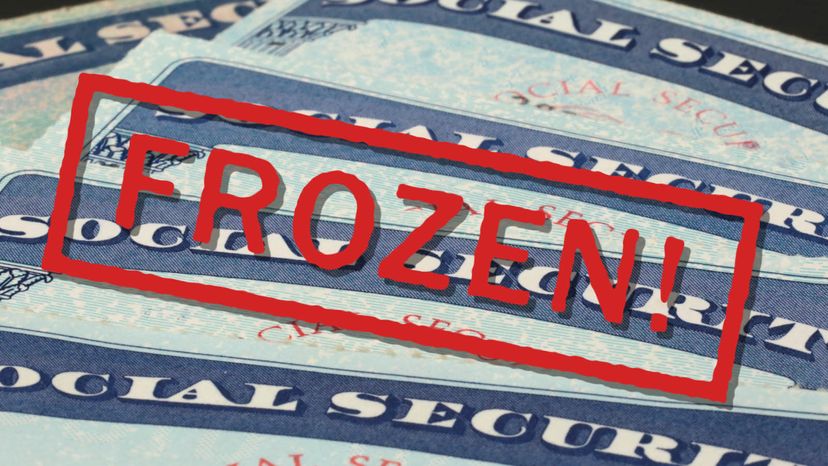 “Freezing your child’s credit early on is one way to help prevent fraud, and a lot of headaches down the road. Douglas Sacha/Getty Images
“Freezing your child’s credit early on is one way to help prevent fraud, and a lot of headaches down the road. Douglas Sacha/Getty Images
Credit fraud is unfortunately a serious problem. In 2017, hackers accessed Equifax, one of the three major consumer credit reporting agencies. That left 143 million American consumers’ sensitive information, including their Social Security numbers, compromised.
And that wasn’t an isolated incident. Major retailers, restaurants and hotels like Macy’s, Marriott, Adidas, Saks Fifth Avenue and Planet Hollywood have also had major data breaches, exposing their customers’ information.
But adult consumers agree to take a certain amount of risk with their personal information. They sign up for — and use — credit cards. They give their Social Security number for bank loans and car loans. But what about a child? They do none of these things. So as a parent, you could be caught completely off guard if your child graduates from high school and you discover they’ve already purchased a car or rented an apartment. Or, at least, someone else did using your child’s name and Social Security number.
We’re talking about financial fraud against minors. Opening new bank and credit card accounts are the most common forms. They’re so common they can go undetected for years, according to Forbes.
Identity thieves can use a child’s Social Security number to apply for credit, apply for government benefits, rent apartments and set up utilities. The consequences get more and more complicated over the years. By the time your child is approaching adulthood and needs to apply for jobs, first credit cards, or car and school loans, they may already have a lengthy credit report full of fraudulent activity that needs to be cleaned up.
How to Prevent Credit Fraud Against Children
So what’s a parent to do? For one you can consider freezing your child’s credit as soon as possible. A credit freeze won’t entirely prevent this form of identity fraud, but it’s the most effective form of prevention available, and it can save your family from tons of hassle involved with reporting and cleaning it up.
If you’ve heard the term "freezing a Social Security number," this is the same as freezing credit, according to Syed Ejaz, assistant policy analyst at Consumer Reports.
"There are no drawbacks to freezing your child’s credit," Ejaz says via email. "Consumers who have frozen their credit will need to temporarily unfreeze it when applying for new credit accounts. Parents should keep this in mind when helping their child apply for student loans and other credit products."
A credit freeze works by preventing the three credit bureaus — Equifax, Experian and TransUnion — from disclosing an individual’s credit score to third parties. In effect, this prevents new loans or lines of credit from being opened. Children age 16 or older are permitted to request a credit freeze for themselves, but a legal representative must make the request on behalf of children under 16.
Credit freezes became free thanks to legislation that took effect in September 2018, and the law mandated that the freeze be available to children, as well. That’s an important distinction, since children are most vulnerable to identity theft.
Other Ways to Protect Your Child’s Credit
There are other possible steps you can take to help protect your child’s credit, as well. If you don’t want to freeze your child’s credit, you can consider a credit lock.
Consumer Reports notes that, while a credit freeze is free, the credit bureaus all offer a credit lock, though it’s not always free. That said, credit locks may be more convenient than credit freezes, because a freeze is intended to be a long-term solution (protecting credit for a child’s entire adolescence, for example) while credit locks can be quickly and easily turned off and on, some via an app.
A credit freeze also comes with legal protection under federal law that the credit locks can’t provide. And if for some reason, the freeze fails or is still bypassed by a criminal, your child will be protected from financial liability related to the credit fraud.
Beyond credit freezes and credit locks, though, you should be careful how and where you share your child’s personal information throughout their adolescence. To some extent, you can’t avoid giving it to their schools, doctors or financial institutions. But do the extra legwork to ensure these organizations are only using the information as necessary. That means reading all privacy notices they provide, keeping all related information in a safe location and shredding copies of documents you don’t need anymore.
If your child’s school, doctor’s office or other organization notifies you of a data breach, check your child’s credit reports and notify the Federal Trade Commission of any unusual activity.
As your child approaches his or her 16th birthday, run a credit check. This will let you know if there are any fraudulent accounts or errors, and give you time to clean up the record, which often requires a lot of paperwork. Again, a credit freeze isn’t foolproof, but it’s likely the easiest and most efficient way to help your child’s credit record stay clean.
Now That’s Interesting
As Forbes notes, if your child is old enough, this is a good opportunity to explain how credit works and why it is important. If your child is too young for this conversation, you can help him or her lift the freeze when it comes time to apply for loans or a credit card.
































